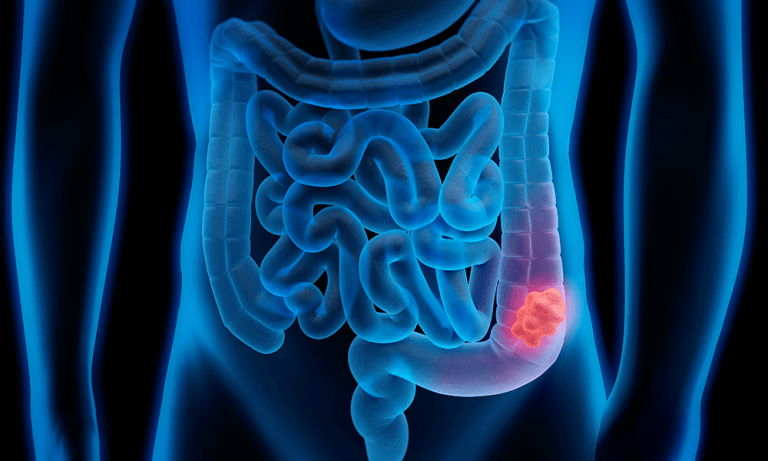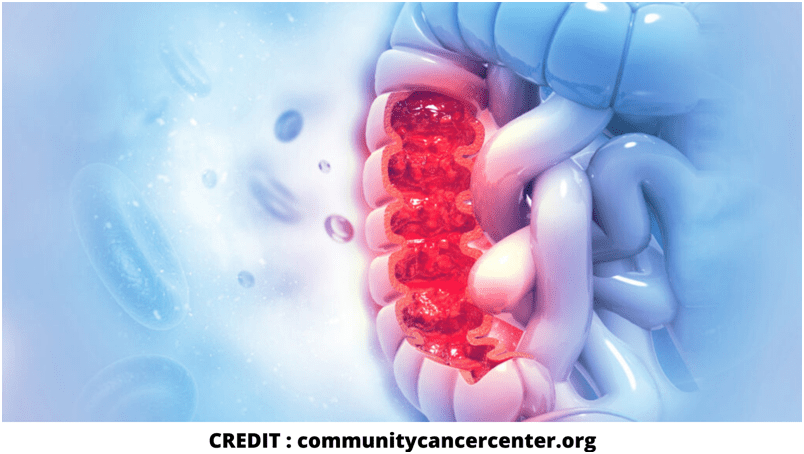Colorectal cancers are located anywhere along with the large bowel, including the rectum. Depending on where they begin, these tumors are referred to as colonic cancer or rectal cancer. Because they share many characteristics, colon cancer and rectal cancer are sometimes clumped together.
Cancer is caused by an uncontrolled division of cells in the body.
Your doctor may use staging to determine how far along cancer has progressed. Your doctor needs to know what stage of cancer you have so that they can devise the optimal treatment plan for you and give you an estimate of your long-term prognosis.
The earliest stage of colorectal cancer is stage 0, and the most advanced stage is stage 4:
Stage 0: This stage is also known as carcinoma in situ because abnormal cells are only found in the inner lining of the colon or rectum at this point and have not infiltrated the colon or the rectum further.
Stage 1: Cancer has broken through the mucosa lining of the colon or rectum and may have spread to the muscular layer. It hasn’t migrated to other regions of the body or adjacent lymph nodes.
Stage 2: Cancer has progressed to the walls of the colon or rectum or has gone through the walls to adjacent tissues, but the lymph nodes have not been impacted.
Stage 3: Cancer has spread to the lymph nodes but not to any other organs.
Stage 4: Cancer has spread to other organs that are far away, such as the liver or the lungs.

Symptoms
Fresh bleeding per rectum
• Consistent stomach pain (crampings, bloating, or gas)
• Feeling as though your bowels haven’t entirely emptied (constipation alternating with diarrhea)
• Any abnormal weight reduction
Now, let’s know
When should you see a doctor?
If you notice any persistent symptoms that worry you, schedule an appointment with your doctor.
Dr. Harsh Sheth is a renowned surgeon and one of the best laparoscopic colorectal and bariatric surgeon in Mumbai. He has years of expertise and can guide you with all the required measures to be taken.
When you should start colon cancer screening, talk to your doctor. Most experts agree that colon cancer tests should begin around the age of 50. Your doctor may recommend more frequent or earlier screening if you have other risk factors, such as a family history of the condition.
Causes
Most colon cancers, according to doctors, are caused by unknown reasons.
Changes in the DNA of healthy colon cells produce colon cancer. The DNA of a cell includes instructions on how it should function.
Healthy cells divide and develop in a regular pattern to keep your body running smoothly. When a cell’s DNA is broken and it becomes malignant, the cell continues to divide even if new cells aren’t required. When cells multiply, tumors develop.
Cancer cells can get big enough to infiltrate and kill healthy tissue over time. Malignant cells can also spread throughout the body, forming deposits (metastasis).
Now, let’s know
Factors that are at risk
The following variables may increase your colon cancer risk:
• Age
• History of colorectal cancer or polyps.
• Inflammatory bowel disorders
• Hereditary conditions that increase the risk of colon cancer
• A family history of colon cancer
• A low-fiber, high-fat diet
• A sedentary lifestyle
• Diabetes
• Obesity
• Smoking
• Alcohol
• Radiation therapy for cancer patients
Prevention
Colon cancer screening
Anyone over the age of 50 who has a moderate risk of colon cancer should get a colon cancer screening. People with a higher risk of colon cancer, such as those with a family history, should have their colons examined sooner and more frequently.
There are several screening options available, each with its own set of advantages and disadvantages. You can consult Dr. Harsh Sheth about your options, and the two of you can determine which tests are right for you.
Changes in your lifestyle to lower your chance of colon cancer
By making little adjustments to your daily routine, you can lower your risk of colon cancer. Take the necessary actions to
• Consume a wide range of fruits, vegetables, and whole grains.
• If you really must drink, do so in moderation.
• You should quit smoking.
• You should work out at least five days a week.
• Stay in a healthy weight range.

